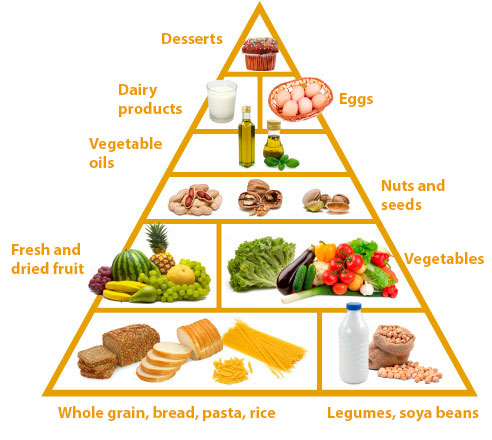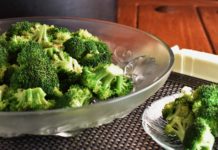If you are willing or interested in reducing the consumption of animal-derived food and other animal food products, then this diet plan is for you. A Lacto-Ovo vegetarian diet has many health benefits if implemented properly. The biggest benefit of following this diet plan is that you will be able to maintain a healthy weight. In this article, we have explained what is a Lacto-Ovo–vegetarian diet, its benefits, and downsides Of Lacto-Ovo-vegetarian diet. We have also mentioned a list of foods that are allowed in this diet plan and the foods to avoid.
What Is a Lacto-Ovo- vegetarian Diet
Lacto here means “dairy products,” and Ovo means “eggs.” A Lacto-ovo-vegetarian diet consists of a plant-based diet, which also includes dairy products and eggs. This Diet excludes fish, meat, and poultry products. People have started following this Diet in recent times to minimize the intake of meat and other animal products for health, ethical, and environmental reasons.
Benefits of Lacto-Ovo- Vegetarian Diet
There are numerous health benefits of the Lacto-ovo-vegetarian Diet if followed in a well planned and balanced way.
Supports weight loss process- Are you struggling to achieve a healthy weight? Try following a Lacto-ovo-vegetarian diet to lose fat and maintain a healthy weight.
- Lacto-ovo-vegetarian diet helps in shedding some extra kilos off of your body. This Diet is rich in fiber and has low calories. This diet plan will keep you feeling full which stops you from over-eating. People who follow a vegetarian diet reduce the risk of obesity. Research has shown that people who follow the vegetarian Diet have low BMI than Omnivores.
- Restrict the risk of Type 2 diabetes- People who follow Lacto-ovo-vegetarian Diet have a low risk of developing type 2 diabetes. Vegetarian Diet increases healthy food intake, like fruits, vegetables, whole grains, nuts, legumes, and reduce Trans fats and saturated fats consumption. Vegetarian Diet increases the blood sugar control that improves insulin sensitivity and regulates sugar level in the body. Vegetarian food consumption also decreases the level of Hemoglobin A1c.
- Improves heart health- Regular meat consumption increases the plaque buildup in the arteries, which is a major cause of atherosclerosis and other heart diseases. Lacto-Ovo vegetarian diet lowers the risk of artery diseases. Plant-based foods improve blood flow, blood vessel health, and reduce blood pressure, which means low risk of heart diseases.
Downsides and Considerations of Lacto-Ovo- Vegetarian Diet
A diet plan shows healthy effects only if followed in a proper manner. There are some factors to take into considerations when following the Vegetarian Diet to avoid any adverse health effects.
- Diet equality importance– There is a wide range of variety available in the market to choose from when it comes to vegetarian foods. These pre-packed vegetarian-friendly foods are highly processed and full of added salt, sugars, oils, unhealthy fats, and lots of calories. Be careful when you pick a food item. Check the ingredient list and nutritional content thoroughly on the food label. Be a smart shopper.
- Potential supplementation needs– The vegetarian Diet is nutritionally adequate, but paying attention to the required intake of protein, iron, omega three fatty acids, and zinc is important. Keep a check on your daily vitamin intake to support the lack of nutrients. Protein is important for health, and plant-based diets lack in protein content. Include seeds, nuts, legumes, and eggs in your daily diet. Similarly, tofu, almonds, green leafy vegetables, lentils, and beans are a rich source of iron, and iron is vital for transporting oxygen to body parts.
- Vitamin c rich foods such a pepper and citrus fruits improve the iron consumption in the body. Zinc-rich foods like peas, beans, peanut butter, tofu, grains, cashew, and fortified cereals should also be mandatorily consumed to support body growth, wound healing capacity, and for a healthy immune system. Eating walnuts and alga oil supplements and flax seeds will fulfill the omega-3 fatty acid requirement in the body, which is great for the brain, nerve, skin, and eye health.
Foods to Avoid and Foods to eat In Lacto-ovo-vegetarian diet
Foods to eat In Lacto-ovo-vegetarian diet
- Fruits: apples, oranges, bananas, strawberries, melons, peaches
- Whole grains: quinoa, barley, oats, amaranth, buckwheat
- Vegetables: broccoli, bell pepper, kale, spinach, eggplant, mushrooms,
- Eggs: Whole eggs, including whites and yolks
- Dairy products: milk, cheese, yogurt, butter
- Nuts, seeds, and nut butter: cashews, almonds, pumpkin seeds, walnuts, flax seeds, peanut butter
- Beans and legumes: beans, peanuts, peas, lentils
- Healthy fats: avocados, olives, olive oil, nuts, seeds
- Vegetarian protein: tofu, tempeh, seitan, and vegetarian protein powder
Foods to avoid In Lacto-ovo-vegetarian diet
If following a Lacto-Ovo vegetarian diet, you must strictly avoid consumption of animal-derived food except for dairy and eggs. Check the ingredient list of packaged food items carefully.
- Meat: beef, lamb, veal, pork, and processed meats (sausage, bacon, and hot dogs)
- Fish: fish, shellfish (crab and lobster), shrimp
- Poultry: chicken, duck, quail, goose, turkey
Read More:- Try These Easy Paleo Diet Recipes At Home.

















